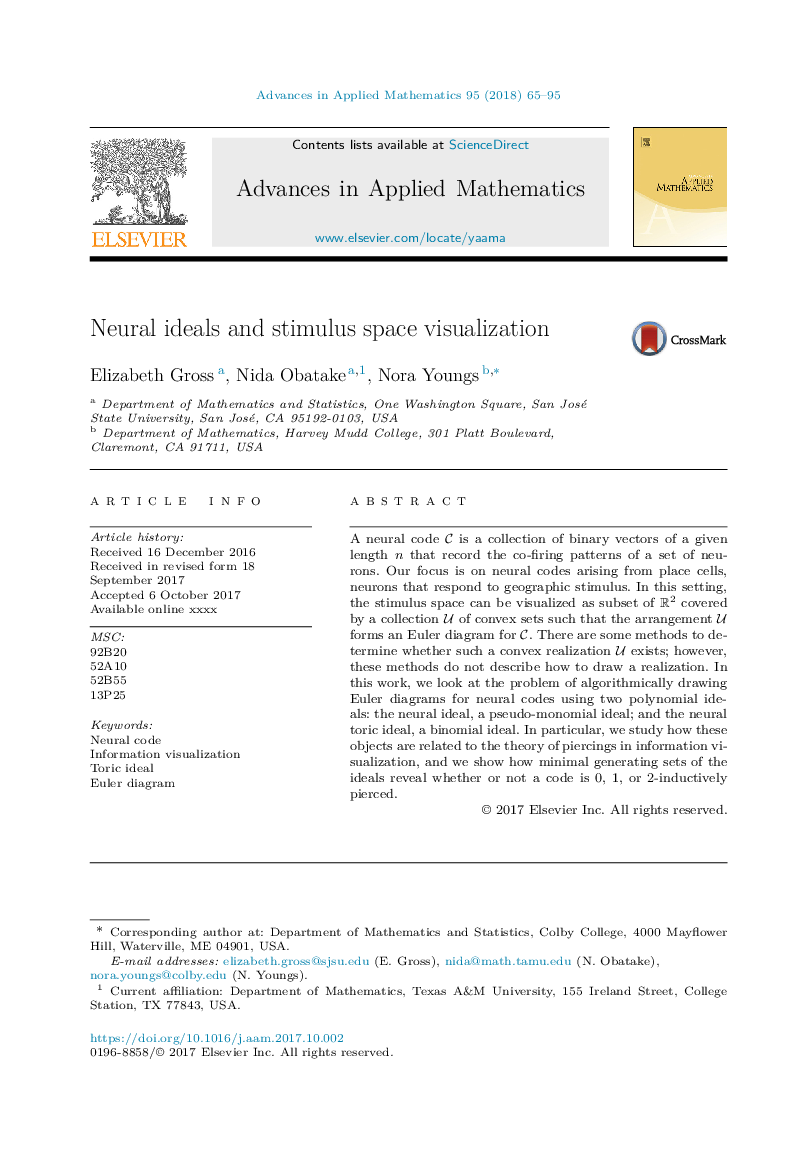| Article ID | Journal | Published Year | Pages | File Type |
|---|---|---|---|---|
| 8900520 | Advances in Applied Mathematics | 2018 | 31 Pages |
Abstract
A neural code C is a collection of binary vectors of a given length n that record the co-firing patterns of a set of neurons. Our focus is on neural codes arising from place cells, neurons that respond to geographic stimulus. In this setting, the stimulus space can be visualized as subset of R2 covered by a collection U of convex sets such that the arrangement U forms an Euler diagram for C. There are some methods to determine whether such a convex realization U exists; however, these methods do not describe how to draw a realization. In this work, we look at the problem of algorithmically drawing Euler diagrams for neural codes using two polynomial ideals: the neural ideal, a pseudo-monomial ideal; and the neural toric ideal, a binomial ideal. In particular, we study how these objects are related to the theory of piercings in information visualization, and we show how minimal generating sets of the ideals reveal whether or not a code is 0, 1, or 2-inductively pierced.
Related Topics
Physical Sciences and Engineering
Mathematics
Applied Mathematics
Authors
Elizabeth Gross, Nida Obatake, Nora Youngs,
